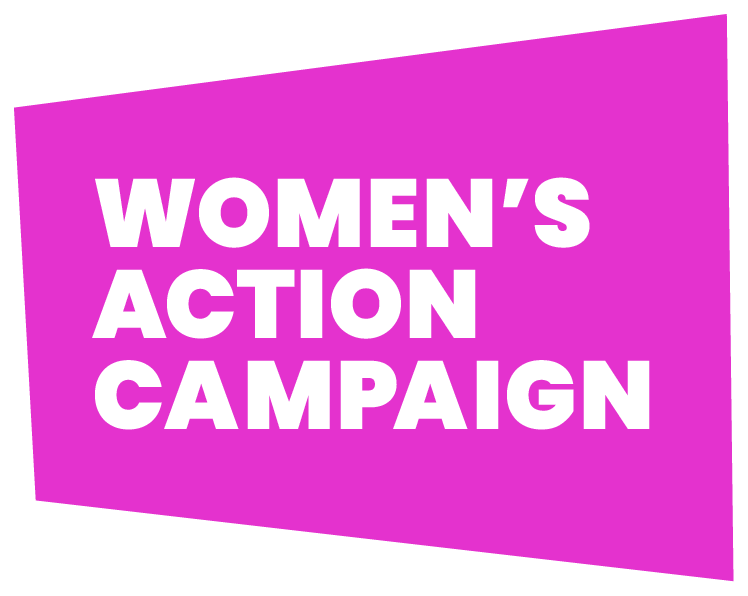South Africa must strengthen its global voice to end rape as a weapon of war.
FOR IMMEDIATE RELEASE
Conflict-related sexual violence up by 50% over past year, according to UN.
Today, 19 June 2024, marks the United Nations International Day for the Elimination of Sexual Violence in Conflict, proclaimed by the UN General Assembly in 2015. This day aims to raise awareness about ending conflict-related sexual violence, honour victims and survivors worldwide, and pay tribute to those who have dedicated or lost their lives to eradicating such crimes.
Despite being one of the strongest rights-based democracies, South Africa’s response to the use of rape and sexual violence as a weapon of war has been inconsistent, at best.
This must change.
The past decade has seen a sharp escalation of Conflict-Related Sexual Violence (CRSV) across the globe. This year in U.N. Secretary General’s annual report found that verified cases of conflict-related sexual violence rose by a staggering 50% in the last year. Occurring in more than 20 different conflict zones, from Afghanistan to Ukraine, from Israel and the Democratic Republic of Congo to Sudan. However it warns that this stark figure may only be a fraction of the full picture globally.
Those who survive wartime sexual violence – including rape, forced marriage and sexual slavery – are left with lasting physical and emotional scars, robbed of health, dignity, peace, justice. They are often silenced and shamed, as social taboos, shattered health systems, insecurity and fear prevent them from seeking or accessing support. Their participation in social, political and economic life is thwarted.
The perpetrators often remain free.
“These are not sexual acts; they are forms of torture. CRSV violates not only the physical and mental integrity of the victims but also breaches international humanitarian law and human rights principles. The consequences extend beyond the immediate trauma, impacting individuals, families, communities and countries for years, even decades, afterwards,” says Angie Richardson, spokesperson for WACSA.
Earlier this year, Women’s Action Campaign South Africa (WACSA) conducted a national survey on attitudes towards rape and Gender-Based Violence (GBV). WACSA also surveyed perceptions about sexual violence during Hamas militants’ attack on Israel on October 7, 2023. The survey’s full findings are publicly available on our website.
“It is deeply concerning that a significant minority of South Africans (25%, or one in four) believe rape can sometimes be justified. Alarmingly, one in three believe it is justified in wartime as a tactic to weaken the enemy,” says Richardson.
Recent years have seen a disturbing rise in the use of sexual violence as a tactic of war and terror in various conflicts across Africa, in particular. As a leading voice for human rights on the continent, South Africa needs to raise its voice in eradicating CRSV wherever it occurs. South Africa must demonstrate its support for all victims and survivors of CRSV, wherever they may be and whoever they are.
Human rights are the cornerstone of our South African Constitution. Recently, President Ramaphosa said, “We have a moral obligation towards building a culture of human rights globally.”
Conflicts using rape and sexual violence as a weapon of war are in stark opposition to South Africa’s strongly rights-based democracy. Therefore, our country must play its part in combating this tactic, wherever and whenever it occurs. Victims should never be silenced or ignored due to political biases.
WACSA aims to raise awareness about violations of international law involving rape and sexual violence as a weapon of war. The path to healing and justice starts with our collective voice.
“We call on all South Africans to add their voices to our campaign to stand in unwavering solidarity with all survivors of CRSV by declaring that rape and sexual violence are never, ever justified. No exceptions,” says Richardson
Join our campaign by adding your name to this petition on change.org
-ends-
Editor Notes:
Definition and prevalence of CRSV
The term “conflict-related sexual violence” refers to rape, sexual slavery, forced prostitution, forced pregnancy, forced abortion, enforced sterilisation, forced marriage and any other form of sexual violence of comparable gravity perpetrated against women, men, girls or boys that is directly or indirectly linked to a conflict. The term also encompasses trafficking in persons when committed in situations of conflict for sexual violence or exploitation.
A consistent concern is that fear and cultural stigma converge to prevent the vast majority of survivors of conflict-related sexual violence from coming forward to report such violence. Practitioners in the field estimate that for each rape reported in connection with a conflict, 10 to 20 cases go undocumented.
About WACSA
WACSA’s creation was born from breaking the silence surrounding the sexual violence committed by Hamas in Israel on October 7. The campaign now includes a focus on Conflict-Related Sexual Violence, as Israeli women are not alone.
WACSA, as a non-partisan organisation, champions the fight against gender-based and sexual violence globally, including during armed conflict. We believe a strong foundation in constitutional democracy, the rule of law, and human rights offers the most effective framework for long-term women's safety and perpetrator accountability.
Guided by principles of non-discrimination, WACSA firmly opposes antisemitism, Islamophobia, hate speech, misogyny, and all forms of prejudice. We actively seek collaboration with organisations, institutions, and individuals who share our commitment to these values.
WACSA is committed to creating awareness of the disturbing rise in the use of sexual violence as a tactic of war and terror in various conflicts across the globe. South Africa is a leading voice for human rights and it needs to raise its voice in eradicating CRSV wherever it occurs. South Africa must demonstrate its support for all victims and survivors of CRSV, wherever they may be and whoever they are.
For more details, visit the WACSA website.
